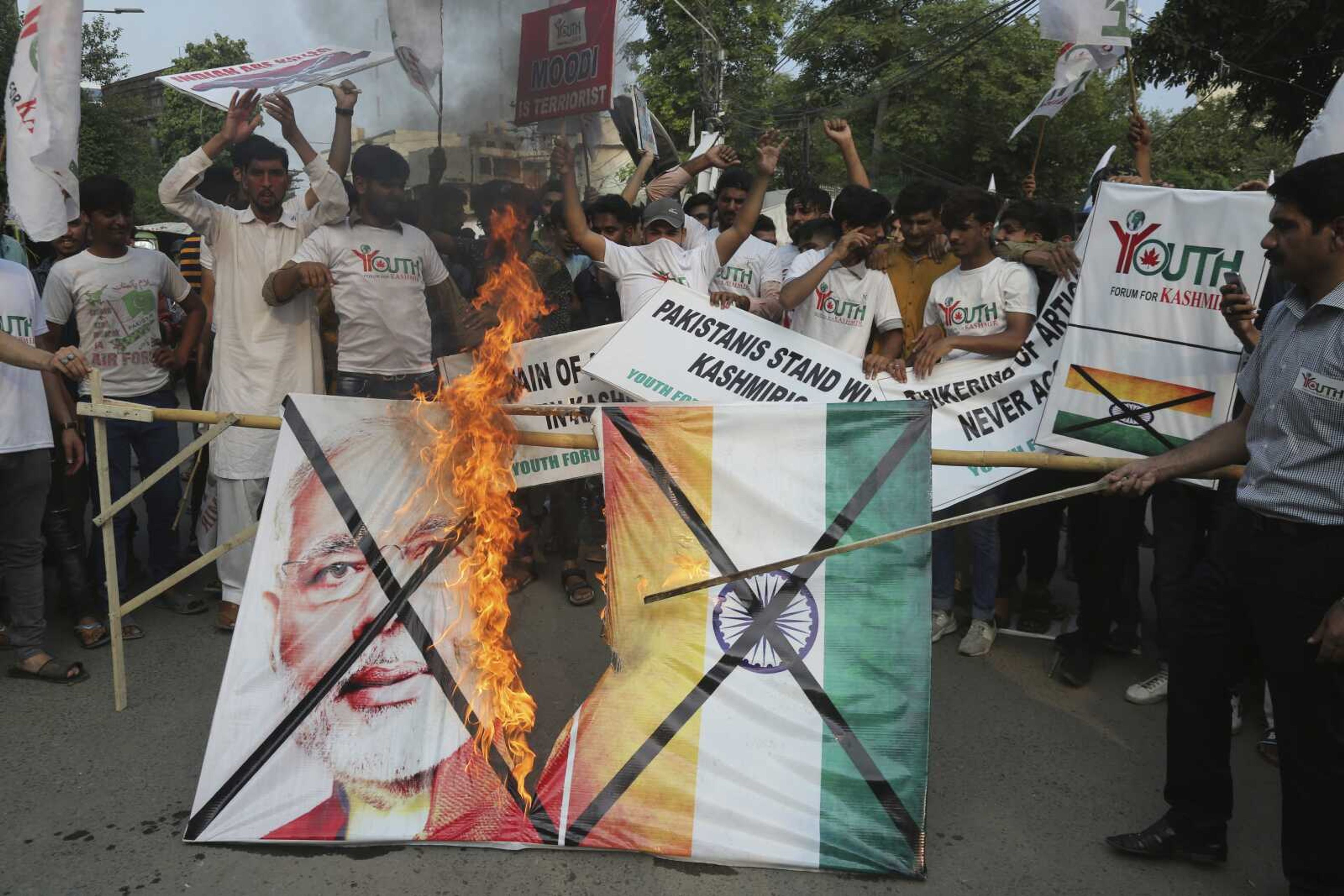Unrest feared after India revokes Kashmir's status
NEW DELHI -- India's Hindu nationalist-led government moved Monday to revoke the special status of Muslim-majority Kashmir, cutting off communications and deploying thousands of troops in the restive Himalayan region amid fears the action could lead to uprisings there...
NEW DELHI -- India's Hindu nationalist-led government moved Monday to revoke the special status of Muslim-majority Kashmir, cutting off communications and deploying thousands of troops in the restive Himalayan region amid fears the action could lead to uprisings there.
Home Minister Amit Shah announced the revocation amid an uproar by opposition lawmakers in Parliament over the move.
It also comes as Kashmir is under a security lockdown keeping thousands of people in their homes and in the dark about the change, which would strip them of long-held hereditary rights to jobs, scholarships and land ownership in the disputed region along the mountainous India-Pakistan border.
The order, which still needs the approval of the ruling party-controlled Parliament, revokes Article 370 of India's Constitution, eliminating the Indian-administered state's right to its own constitution and decision-making process for all matters except defense, communications and foreign affairs. It would also allow Indians from outside the region to permanently settle, buy land, hold local government jobs and secure educational scholarships.
Government critics see the move as an attempt to dilute the demographics of Kashmir, which is predominantly Muslim, with Hindu settlers. Proponents say scrapping Article 370 addresses gender discrimination, since the law stipulates Kashmiri women who marry people outside the region lose inherited property rights, and will vitalize the economy.
Rebels in Indian-controlled Kashmir have been fighting Indian control for decades. It was unclear when freedom of movement would be eased in the region, but an outpouring of condemnation by Kashmiris living outside the region or who were able to access the internet despite the government blocks suggest there will be resistance to the changes.
The U.S. Embassy in New Delhi issued a security alert, urging Americans to leave the region immediately citing the "potential for terrorist incidents, as well as violent public unrest."
In a statement, Amnesty International India said the move could "cause unrest and wide-scale protests in the state."
In Delhi, protesters marched shouting slogans such as "we will not tolerate murder of democracy," and holding signs stating "we stand with Kashmir."
The order by the government of Prime Minister Narendra Modi amounted to a "constitutional coup," activist Kavita Krishnan said, adding "it is not just about Kashmir. It is also a prelude to destroying the constitutional rights and liberties of all Indians."
Kashmir is divided between India and Pakistan and both claim the region in its entirety. Two of the three wars between the nuclear-armed neighbors have fought since their independence from British rule were over Kashmir.
Most Kashmiris support the rebels' demand the territory be united either under Pakistani rule or as an independent country, while also participating in civilian street demonstrations against Indian control. About 70,000 people have been killed in the uprising and the ensuing Indian crackdown.
Pakistani Foreign Minister Shah Mahmood Qureshi said Pakistan will step up diplomatic efforts to prevent the order from taking effect.
"India is playing a very dangerous game by changing the status of Kashmir through illegal acts," he told a Pakistani TV station from Saudi Arabia, where he is on a pilgrimage to Mecca.
In Pakistan's capital of Islamabad, hundreds of Kashmiri activists rallied against the change in Kashmir's status. The demonstration took place near the diplomatic enclave where India's embassy is located but authorities kept demonstrators away from the building.
Ghulam Mohammad Safi, a prominent Kashmiri leader in Pakistan, urged the United Nations and the international community to help Kashmir achieve self-determination.
The president of the Pakistan-controlled portion of Kashmir, Sardar Masood Khan, also rejected the Indian presidential order and said it could lead to a war with Pakistan.
Mehbooba Mufi, former chief minister for Jammu and Kashmir, tweeted the Indian government's action was illegal and unconstitutional.
"Today marks the darkest day in Indian democracy," Mufti wrote.
Connect with the Southeast Missourian Newsroom:
For corrections to this story or other insights for the editor, click here. To submit a letter to the editor, click here. To learn about the Southeast Missourian’s AI Policy, click here.










